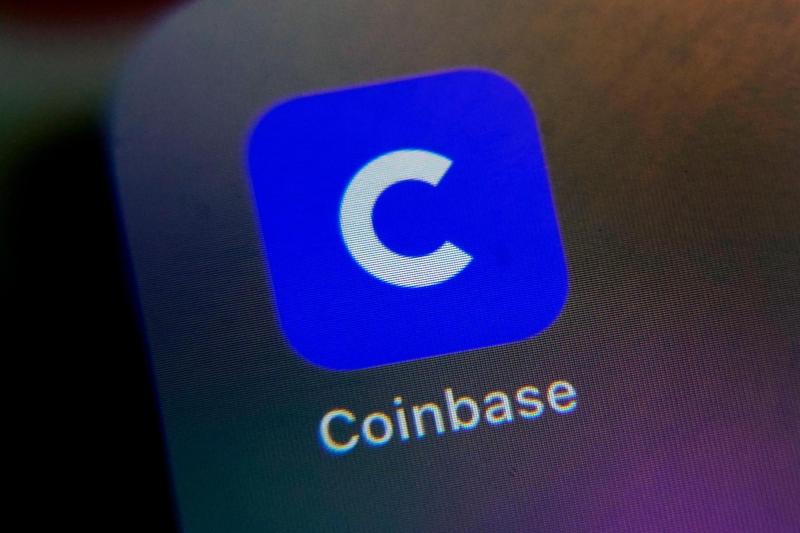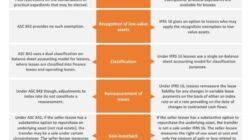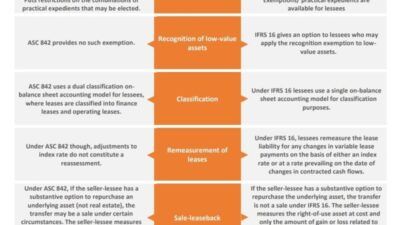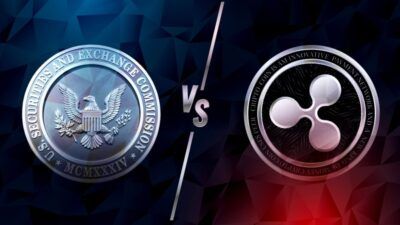Sec V Coinbase Appeal – Summary: In the event of an important decision, the Court of Appeal of the Third District of the United States dealt with the Coinbase Challenge of Securities and Exchange Committee (SEC) to prohibit the application for digital assets. Coinbase argued that the current approach of SC – using existing securities regulations to digital assets – is both impractical and unfairly opaque. The judgment of the court issued on January 13, 2025 was determined that the refusal of the Coinbase Petition SEC was not sufficiently discussed. Also, it was unable to deal with the unique challenges of digital assets, such as their decentralized nature and diverse usage regulations. Consequently, the court ordered the SEC, demanding an additional explanation of its decision. [Opinion]
Coinbase filed a statement in July 2022, calling for SEC to announce the rules specifically adapted to digital assets. The company stated that the framework for securities for traditional financial instruments is contrary to the unique features of chip -based assets. According to Coinbase, the demand for digital assets to match traditional securities rules creates conformity problems that are “economically and technically impossible”.
Sec V Coinbase Appeal

Despite these concerns, SEC rejected the Coinbase Petition, saying in one paragraph that he disagreed with Coinbase’s claims and that he preferred to move gradually while preferring other regulatory action plans. Coinbase then presented the third district for review, claiming that the SEC refusal was arbitrary, capricious and was sufficiently justified under the Administrative Procedure Act (APA).
Why Coinbase Lend Really Was Security Issuance
The court again confirmed that federal agencies, such as SECs, have a large -scale discretion to decide whether to deal with the rules. In quoting the precedent, the court noted: “The order of initiating the proceedings of the Institute of Court proceedings is checked at the most inefficient end of the arbitrary and capricious spectrum” (p. 16).
However, the court emphasized that this consideration is not absolute and that it complies with the requirement to make a reasoned decision. Instead of preparing the rules, the SEC decision does not in itself violate the Administrative Act. However, the Agency’s reasoning needs to be explained sufficiently.
The court also criticized the inconsistency of the SEC’s enforcement actions. He noted that SEC dealt with similar digital assets in cases against Coinbase and other units differently. For example:
“SEC complained of two shifts, Coinbase and Binance, one day apart. Betrayed the inner inconsistency, called the six crypto assets in Coinbase suits as Binance also lists, but without them aim
The Sec Appeals Ripple Court Decision
In addition, the court noted that the SEC’s counsel was a non -committee when he was asked whether Bitcoin and Ether, the two most striking digital assets, were held under the Agency’s framework. During the oral arguments, SEC lawyer stated:
“I am not aware of the Commission’s statement about the status of Bitcoin as a whole … There is no answer to the question” (p. 18).
This hesitation emphasizes the broader uncertainty associated with the SEC’s attitude on the key issues in the field of digital assets and its reluctance to provide definitive guidance.

“A single sentence that disagrees with the main concerns of the preparation of the rules is inferior to us and does not give us confidence that SEC held objections to Coinbase’s operating” (p. 40).
Here’s Why Sec’s Case Vs. Coinbase Is Unlikely To Be Dismissed
Coinbase also stated that the seci regulatory framework requires that it must be possible for all companies. The court rejected this argument, explaining:
“The existing framework for securities is not expected, provided that it will never burden any possible new market player. On the contrary, laws often work by regulating or even prohibiting behavior that some would like to continue.” (p. 36)
“In the context of the Securities Act, it is unobtrusive that innovative complex financial instruments may not always fit under the rules of existing securities, especially if the natural features of these innovative financial instruments can undermine the objectives of these rules.” (p. 36)
“The modified factual predictive principle applies only to narrow cases where the agency explicitly justifies its actions to the fact that later changes.”
Sec’s Ripple Appeal Is Next To Fall, Former Sec Official Declares
The court concluded that while Coinbase’s employment problems are not frivolous, these are the SEC considerations to be addressed in future regulatory efforts, instead of repealing the current framework.
SEC also justified its denial, referring to competing regulatory priorities and preferring gradual action. The court acknowledged the SEC’s discretion to allocate resources, but noted:
“These are many words that mean very little – SEC can take measures in the future for digital assets, and if that happens, it can consider the experience it accumulates …” (p. 46).

Coinbase applied for the court to force the SEC to initiate rules. The court refused, emphasizing that such an arrangement was reserved for extraordinary circumstances, such as cases involving the risk of public health. Instead, the court ordered the case to the SEC, directing a more in -depth explanation to the agency to deny it.
Arbitrary And Capricious’ Strikes Again
“At this stage, the remedy is not to organize the procedure for drafting the Rules of the SEC Institute, but to transfer the Coinbase’s petition for sufficient disposal” (p. 49).
Judge Bibas’s concomitant opinion examines constitutional problems concerning the regulation of digital assets of the SEC approach. He highlighted the absence of a fair notice to be submitted to the industry by noting:
“SEC repeatedly encounters cryptocurrencies for not following the law, but that does not tell them how to execute it. This towing causes a serious constitutional problem;
“The SEC’s random enforcement strategy … does not announce to the potential defendants that the proper procedure requires. This is especially true because the area is new” (p. 21).
Coinbase: Us Sec, Coinbase Clash In Court Over Crypto Rulemaking
He emphasized that regulatory enforcement must not be clear and predictable. The opinion also questioned whether the current methods of SEC correspond to the mandate under its statutory, pointing out that enforcement strategies alone cannot provide the regulatory clarity needed for the evolving industry. Judge Bibas noted:
“SEC demands that its old rules apply to the novel’s crypto market, but refuses to clarify how” (p. 19).
So SEC has abandoned the process of developing the rules by continuing instead of enforcing a de facto ban. By combining regulatory uncertainty with the unpredictable enforcement of the crypto trading infrastructure, it can get complete deterrence. ”(P. 22)

Third District decision in Case Coinbase, Inc. v. SEC emphasizes continued challenges in the implementation of traditional securities laws to developing technologies such as digital assets. By refuting the case to the SEC, the court has clearly stated that the regulatory authorities must provide clear and reasoned explanations in the resolution of unique complexity. Fulfillment without clarity risks stifling innovation and fair competition.
Sec Vs Coinbase: Court Questions Regulator’s Limited Reasoning In Denial Of Rulemaking Request
Based on this opinion, the court found a simplicity of the Coinbase argument. It concluded that while the problems of operating are relevant, they do not mean a factual predicate on the basis of the entire regulatory framework. In other words, the court concluded that while Coinbas’ concerns about the challenges of conformity are valid and important, they do not invalidate the existing regulatory framework of the SEC. Instead, these SEC considerations are in future explanations and the efforts of preparing rules.
In the case of a third district, Coinbase, Inc. v. SEC has a number of important effects for the digital property industry. The pre -elder of the court gives companies the opportunity to promote clearer and adapted rules through commentary periods, petitions and industry coalitions. At the same time, existing securities laws are still enforceable, highlighting the need for companies to review their conformity policy, especially in symbolic sales, custody and trading activities. Preference for SEC to enforce the rules on the preparation of rules emphasizes the importance of preventive risk assessment, including preventive regulatory submission, where appropriate. Court judge Bibas in concomitant acclaimed claims of the requirements may be founded for constitutional defense mechanisms against enforcement measures if there is no fair notice. In addition, the lack of clear guidance leaves companies in the state of regulatory uncertainty, such as Bitcoin and ether, which make important guidelines on the state of regulatory uncertainty, making it important to obtain legislative legislation and evolving case law and regulatory measures to be closely monitored. The topic of this news is the current legal battle between the US Security and Exchange Commission (SEC) and one of the largest encryption tools in the world. The Federal Court of Appeal may declare the purchase and sale of cryptocurrencies carried out on the Coinbase platform to be exempt from securities transactions. This very important and eye -catching litigation can change the functioning of the entire digital currency industry not only to determine market regulation, but also how it operates in the near future.
Coinbase puts a case where cryptocurrencies should be considered non -security, as it is difficult to figure out the identity of the parties and there are no obligations between the buyer and the seller. In preventive measures, SEC can still interfere with these transactions and regulate the market.
This time, the article focuses on the political situation and recent events, and we are discussing the state of the cryptocurrency market, which has taken the potential results of a bad turn and the judgment of the courts.
Examining The Sec’s Approach Towards Crypto
Coinbase and SECs in court have developed the focal point of the cryptocurrency industry. Coinbase, the main part of the cryptocurrency exchange market, is facing SEC accusations that they act as an unregistered securities exchange. SEC accuses Coinbase’s respect
Dirks v sec, sec v texas gulf sulphur co, coinbase v, coinbase v etoro, sec appeal, asme sec v, sec v chenery, sec v, coinbase sec, coinbase sec probe, coinbase v coinbase pro, asme bpvc sec v












